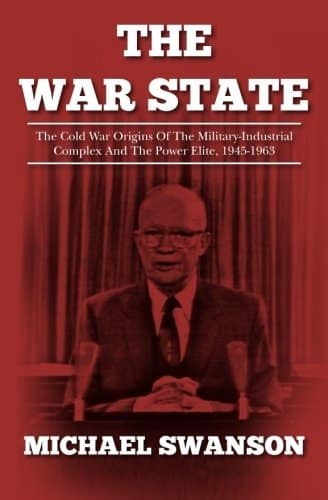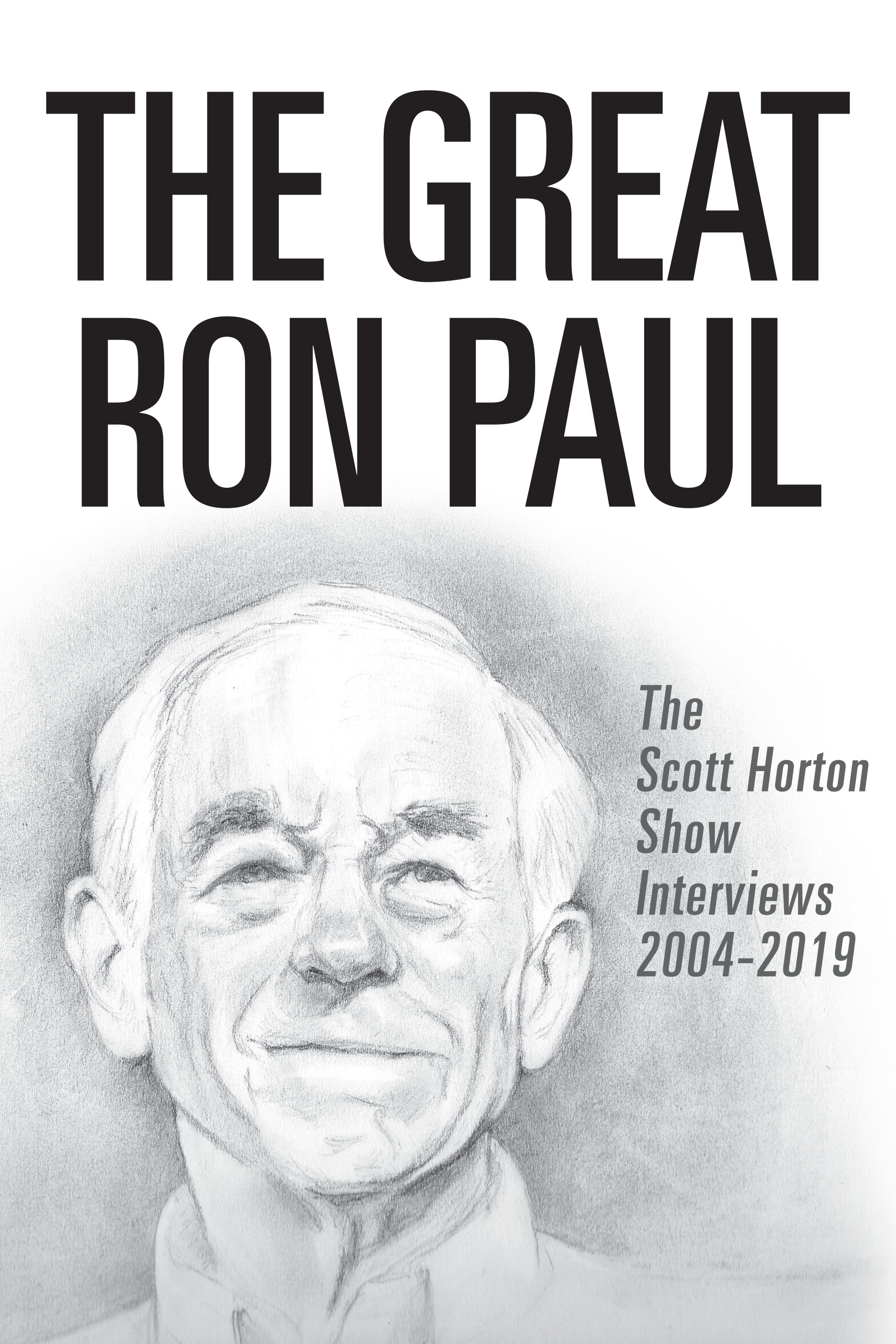Gareth Porter joins Scott on Antiwar Radio to discuss his latest piece about the media’s reaction to Afghanistan. Porter lays out how virtually the entire media ecosystem is arguing the withdrawal was done prematurely from both a counterterrorism standpoint and in terms of the evacuation of American citizens and allies. However, the media is ignoring the root of the problem was the overconfidence the U.S. Military and Intelligence Community had in the Afghan National Army. Porter argues that...
9/3/21 Dan McKnight on Defend the Guard and the Withdrawal From Afghanistan
Scott talks with Dan McKnight about the effort to pass Defend the Guard legislation, which would block the use of National Guard troops in foreign combat operations without a declaration of war. McKnight gives background on what led him to become involved in political activism and how the absence of the Louisiana National Guard during Hurricane Ida is yet another reason for this legislation. Scott and McKnight also talk about the value veterans bring to the movement to end wars. Lastly,...
8/30/21 Jack Murphy on America’s Failed Drone Campaign in Afghanistan
Scott talks with Jack Murphy about the piece he wrote detailing the surge in drone strikes that took place under President Trump. Murphy explains how the whole project started when a distraught drone operator approached him. It quickly became clear that that drone operator was not alone. Murphy details how Rules of Engagement (ROE) are formulated and how they evolved during the Obama and Trump presidencies. This leads to a discussion of the ruthless drone campaign that the U.S. carried out...
8/27/21 Ashraf Nubani on Why Sirhan Sirhan, the Man Convicted for Killing Robert Kennedy, Ought to Be Released
Scott interviews attorney and writer Ashraf Nubani about his recent piece making a case for releasing Robert Kennedy’s convicted assassin Sirhan Sirhan. Nubani explains that Sirhan meets all the stated requirements of the parole board and that the pressure to keep him in prison is mainly political. Note: This interview was recorded hours before the news broke that the California Parole Board recommended Sirhan’s release. Governor Newsom’s office will now review the case and can still block...
8/27/21 Daniel Davis on the Kabul Airport Bombing
Scott speaks with Daniel Davis about the suicide bombing at the entrance to the Kabul Airport. Davis considers this an especially devastating attack because the soldiers killed were only days away from being withdrawn from the country. He also believes that these withdrawal issues could have been prevented if U.S. troops had left a decade ago instead of flooding the country as they did under Obama’s surge. Davis goes on to explain why he has no respect for those who lie to the families of dead...
8/27/21 Peter Van Buren: There Will Be Another Afghanistan
Scott talks with Peter Van Buren about the situation in Afghanistan. Van Buren explains that many of the people tasked with working on the Afghanistan War were, in fact, working to cover up their own role in the war. And that these individual failures played off each other to create one massive failure. On top of that, Van Buren argues that policymakers were entirely removed from the costs of the war. And because of that, Van Buren predicts we will soon find ourselves in a similar conflict....
8/27/21 Grant Smith on the Open Secret of Israel’s Nuclear Weapons
Scott interviews Grant Smith about his recent article, which makes the case that the $3.8 billion in foreign aid given to Israel is on questionable legal grounds. It all comes back to Israel’s nuclear weapons, which the U.S. government has not officially acknowledged even exist. Because Israel is not a part of the Non-Proliferation Treaty, it is illegal for the U.S. to give them aid without making a specific case for why it’s necessary. Smith explains that to avoid this, Israel puts a lot of...
8/20/21 Trita Parsi on the True Drivers of Middle East Instability
Scott interviews Trita Parsi about his paper concerning the intervention of Middle East powers over the last decade. Parsi and his coauthor Matthew Petti found that, contrary to the picture often painted of one malign actor driving all the instability, there are really six Middle Eastern countries engaging in a lot of foreign intervention. Iran, which is currently the U.S. foreign policy establishment’s favorite villain, is no more interventionist than the other five. And that most instability...
8/20/21 Daniel McAdams on Hubris of the Foreign Policy Establishment
Scott talks with Daniel McAdams about his recent appearance on RT, where he challenged the Western Media's narrative about China. McAdams says they have it backward, criticizing China for its best actions, such as economic engagement, while seemingly wanting to import the worst of China's policies, like social credit scores. McAdams then speaks about how those in the Foreign Policy Establishment exist in an echo chamber. And that even when he had access to classified material, McAdams believes...
8/20/21 Dave DeCamp: An Update on the Afghanistan Evacuation
Dave DeCamp joins the show to give an update on the effort to evacuate Westerners and their allies from Kabul. He explains that the evacuations are moving at a good clip. So far, the Biden Administration has resisted pressure to send troops into Kabul as there has been no indication that the Taliban are stopping Americans from entering the airport. While there are unconfirmed reports of Taliban fighters committing violence, DeCamp warns that some skepticism is appropriate since many special...
8/17/21 Eric Margolis: This is Not the Worst Case Scenario in Afghanistan
Eric Margolis talks with Scott about the situation in Afghanistan as American forces continue to withdraw. Of course, the last few days have seen nonstop headlines proclaiming an utter disaster in the country, many of them excoriating President Biden for having screwed things up so badly. But Scott and Margolis remind us just how much worse things could be. Margolis points out that for one thing, some Afghan government officials seem to have been quietly preparing for a transfer of power far...
8/17/21 Matthew Hoh on the Systemic Failures Behind America’s Loss in Afghanistan
Scott interviews Matthew Hoh, the Marine veteran who blew the whistle about the doomed Afghan Surge. Hoh lays out what led him to resign in protest and go to the press with the truth about how hopeless the military’s counterinsurgency mission really was. Hoh then explains that, while he is upset that few listened to him back then, he is more disappointed about how many of his colleagues agreed with him, but kept their agreement quiet. Scott and Hoh go through the history of the Obama surge and...
8/16/21 Andrew Cockburn on the Legacy of Zalmay Khalilzad
Scott talks to Andrew Cockburn about his 2014 article on Afghan-born neoconservative Zalmay Khalilzad. Cockburn explains how it was Khalilzad who selected new leaders for Afghanistan and Iraq after the old regimes had fallen to U.S. forces. Scott and Cockburn also touch on Khalilzad’s role in "the Redirection" when the U.S. began backing bin Ladenite groups in an attempt to counter Iran. In the end, Scott and Cockburn think Khalilzad deserves a lot of blame for the current problems in the...
8/13/21 Joseph Solis-Mullen: China Won’t Be Taking Over the World
Joseph Solis-Mullen discusses the claim that America must now turn its attention toward China as the new threat of global hegemony. War hawks will cite China's growing economic supremacy, many alleged human rights abuses and supposed imperialistic designs on its neighbors. To some extent, this characterization is true: Solis-Mullen grants that China's government can be extraordinarily abusive to its people, and says that he wouldn't be surprised if it tried to take over Taiwan. But in general,...
8/13/21 Ken Bensinger on the Role of FBI Informants in the Michigan Kidnapping Plot
Scott talks to Ken Bensinger of Buzzfeed News about the role of FBI informants in the plot to kidnap Michigan Governor Gretchen Whitmer. Bensinger explains that informants played a heavy role in the militia group involved and helped motivate members to take violent action. Although none of the fifteen arrested was assisting the government, informants helped provide the group with training, were present for surveillance of Whitmer’s property and were present during the storming of the Michigan...















